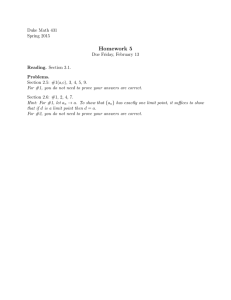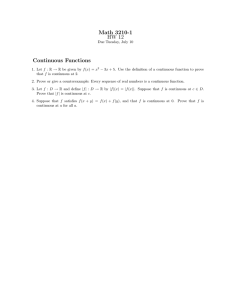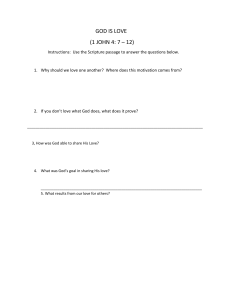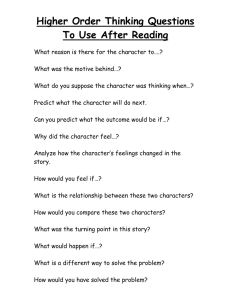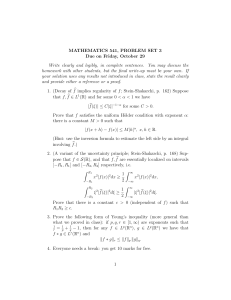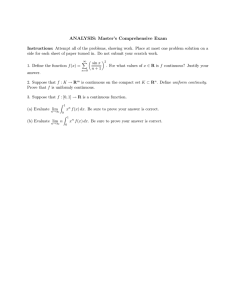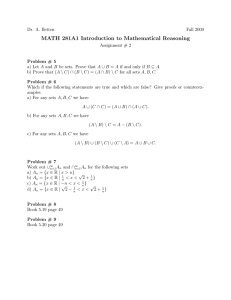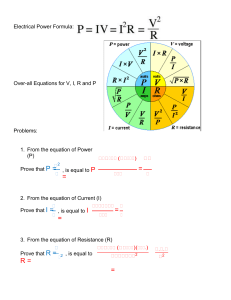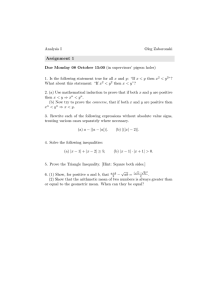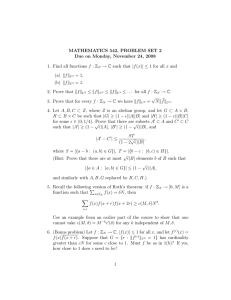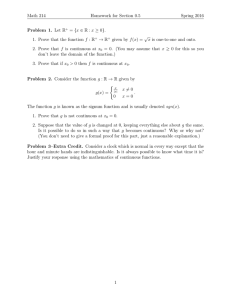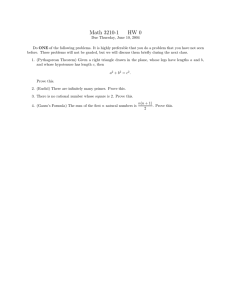Lecture 9 Questions
advertisement
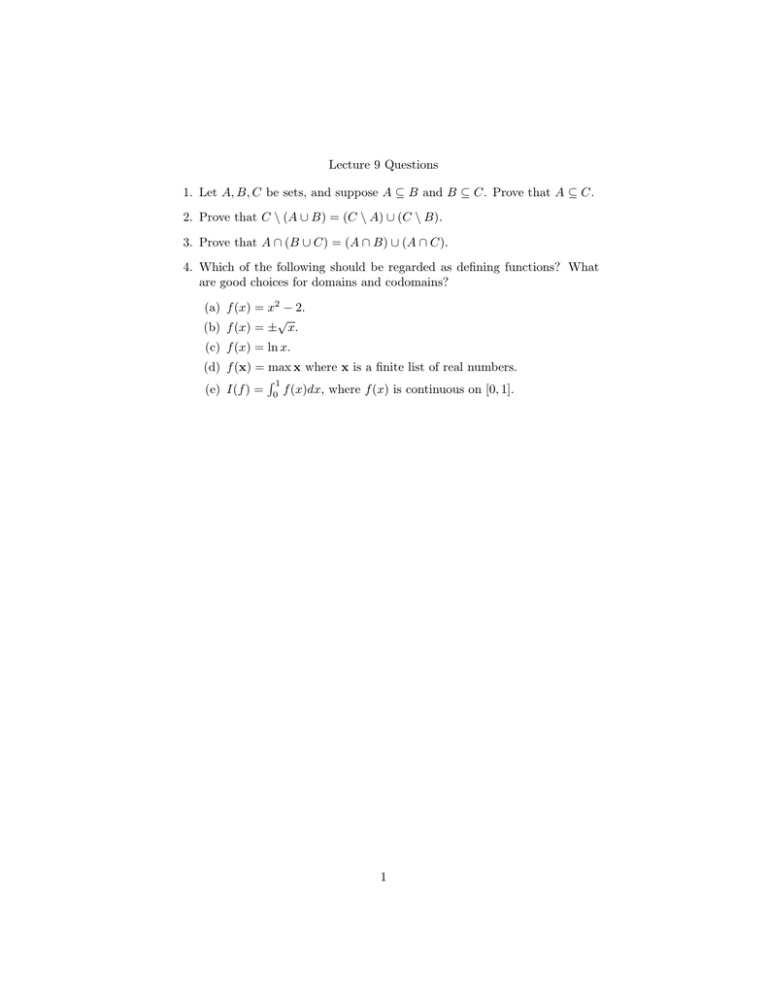
Lecture 9 Questions 1. Let A, B, C be sets, and suppose A ⊆ B and B ⊆ C. Prove that A ⊆ C. 2. Prove that C \ (A ∪ B) = (C \ A) ∪ (C \ B). 3. Prove that A ∩ (B ∪ C) = (A ∩ B) ∪ (A ∩ C). 4. Which of the following should be regarded as defining functions? What are good choices for domains and codomains? (a) f (x) = x2 − 2. √ (b) f (x) = ± x. (c) f (x) = ln x. (d) f (x) = max x where x is a finite list of real numbers. R1 (e) I(f ) = 0 f (x)dx, where f (x) is continuous on [0, 1]. 1
